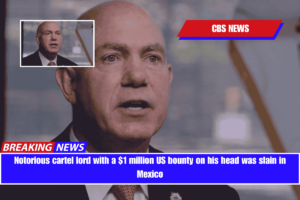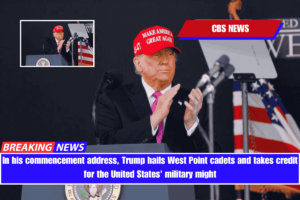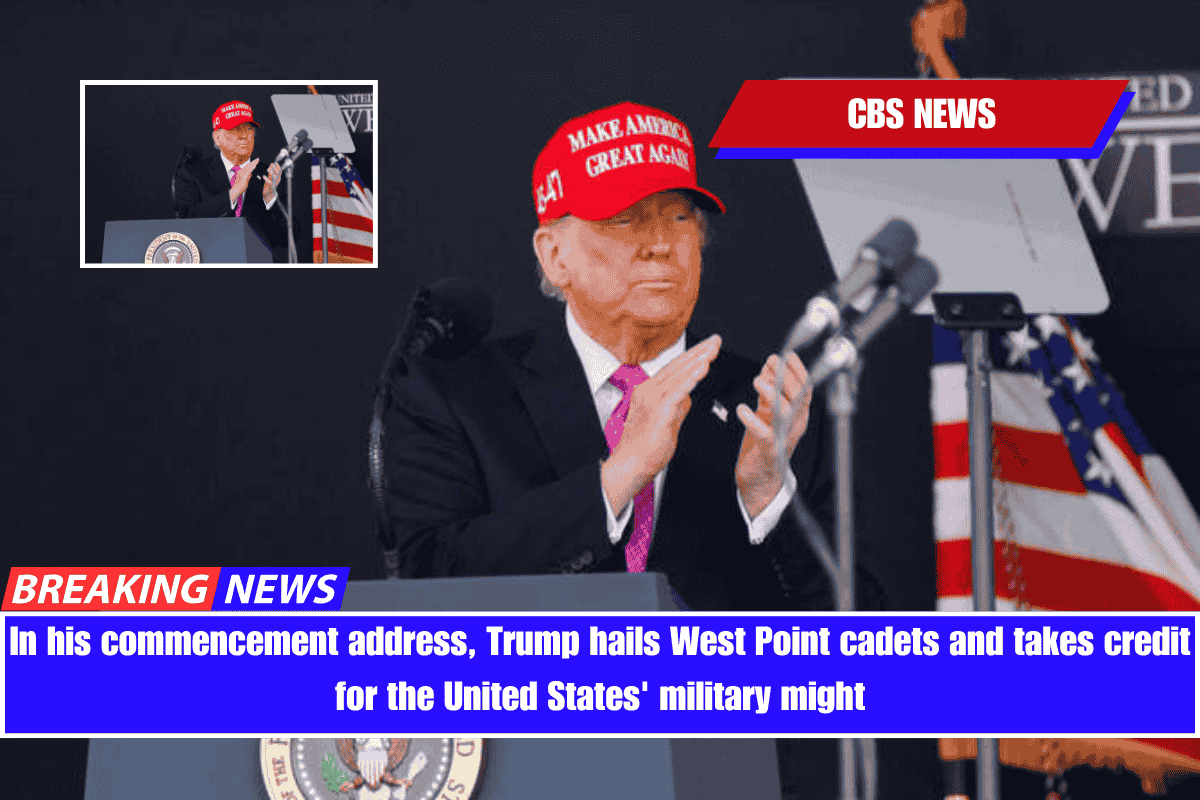Sensitive talks between US and Chinese delegations over tariffs that threaten to upend the global economy concluded after a day of protracted negotiations and will resume on Sunday, according to a source briefed on the meetings.
Following the meetings, President Trump posted on social media Saturday evening that “great progress” had been made.
“We had a great meeting with China today in Switzerland,” Mr. Trump said. “Many things were discussed and agreed upon. A total reset was negotiated in a friendly but constructive manner. We want to see China open up to American business, for the benefit of both countries.
There was no immediate indication Saturday that any progress had been made during the more than 10-hour meeting between Treasury Secretary Scott Bessent and Chinese Vice Premier He Lifeng in Switzerland. The talks, which could help stabilize global markets roiled by the US-China standoff, were shrouded in secrecy, and neither side spoke to reporters on the way out.
According to Bessent’s interview with Fox News last week, the initial talks were likely about “de-escalation, not the big trade deal.” The Treasury secretary stated that the United States and China have “shared interests” because the high tariffs imposed by both countries last month are not “sustainable.”
U.S. Trade Representative Jamieson Greer is in Switzerland with Bessent for the talks.
Several convoys of black vehicles left the Swiss ambassador to the United Nations’ Geneva residence, which was hosting the talks aimed at de-escalating trade tensions between the world’s two largest economies. Diplomats from both sides confirmed that the talks had taken place.
The discussions were held in the luxurious 18th-century “Villa Saladin” overlooking Lake Geneva. The former estate was left to the Swiss state in 1973, according to the Geneva government.
The hope is that the two countries will reduce the massive taxes — tariffs — they have imposed on each other’s goods, relieving global financial markets and businesses on both sides of the Pacific Ocean that rely on US-China trade.
In an interview with NBC News last week, Mr. Trump stated that Chinese officials “want to make a deal very badly.” We’ll see how it all works out, but it must be a fair deal.” The president also stated that he intended to lower tariffs on China “at some point.”
Meanwhile, Chinese officials have stated that they are willing to negotiate with the United States on trade, but have urged the Trump administration to drop its “unilateral” tariffs first.
Mr. Trump raised US tariffs on China to a combined 145% last month, prompting China to retaliate by levying a 125% tariff on American imports. Tariffs this high essentially result in countries boycotting each other’s products, disrupting trade worth $660 billion last year.
Even before the talks began, Mr. Trump suggested on Friday that the United States could lower its tariffs on China, writing in a Truth Social post that “80% Tariff seems right! It’s up to Scott.
Sun Yun, director of the Stimson Center’s China program, stated that this will be the first time He and Bessent have spoken. She doubts that the Geneva meeting will yield any substantive results.
“The best scenario is for the two sides to agree to de-escalate on the… tariffs at the same time,” she said, adding that even a small reduction would be a positive signal. “It cannot just be words.”
Since returning to the White House in January, Mr. Trump has aggressively used tariffs as his preferred economic tool. He has, for example, levied a 10% tax on imports from nearly every country in the world.
But the fight with China has been the most intense. His tariffs on China include a 20% charge meant to pressure Beijing into doing more to stop the flow of the synthetic opioid fentanyl into the United States. The remaining 125% involve a dispute that dates back to Mr. Trump’s first term and comes atop tariffs he levied on China back then, which means the total tariffs on some Chinese goods can exceed 145%.
During Mr. Trump’s first term, the U.S. alleged that claimed China uses unfair tactics to give itself an edge in advanced technologies such as quantum computing and driverless cars. These The allegations include forcing US and other foreign companies to hand over trade secrets in exchange for access to the Chinese market, using government funds to subsidize domestic tech firms, and outright stealing sensitive technologies.
These issues were never completely resolved. After nearly two years of negotiations, the United States and China reached a “Phase One” agreement in January 2020. The United States then agreed not to impose additional tariffs on China, and Beijing agreed to buy more American products. The difficult issues, such as China’s subsidies, were left to future negotiations.
However, China did not fulfill the promised purchases, in part because COVID-19 disrupted global commerce shortly after the Phase One truce was announced.
The fight over China’s technology policy has resumed.
Mr. Trump is also agitated by America’s massive trade deficit with China, which totaled $263 billion last year.
On Friday, Bessent and Greer met with Swiss President Karin Keller-Sutter.
Mr. Trump last month suspended plans to impose 31% tariffs on Swiss goods, which are higher than the 20% levies he imposed on European Union exports. He has temporarily reduced those taxes to 10%, but has warned that he may raise them again.
The Bern government is taking a cautious approach. However, it has warned of the potential impact on key Swiss industries such as watches, coffee capsules, cheese, and chocolate.
“Increased trade tensions are detrimental to Switzerland’s interests. Countermeasures against U.S. tariff increases would cost the Swiss economy, particularly by making imports from the United States more expensive,” the government said last week, adding that the executive branch “is therefore not planning to impose any countermeasures at the present time.”
On Saturday, Bessent said trade talks with Switzerland were “very productive,” and he was “optimistic about the speed of these negotiations,” referring to Mr. Trump’s ongoing trade talks with the United Kingdom.
“I am glad that we have agreed on accelerated trade talks, and we expect that a detailed Swiss proposal will be submitted to Ambassador Greer by next week,” Bessent tweeted. “Swiss companies have indicated their interest in investing CHF 150-200 billion in new U.S. investments thanks to President Trump’s policies, and we look forward to our continued talks.”
The United States is Switzerland’s second-largest trading partner, following the European Union, a 27-member bloc that nearly surrounds the wealthy Alpine country of over 9 million people. The trade in goods and services between the United States and Switzerland has quadrupled over the last two decades, according to the government.
The Swiss government stated that on January 1 of last year, all industrial tariffs were abolished, allowing 99% of all goods from the United States to be imported duty-free into Switzerland.


















Leave a Reply